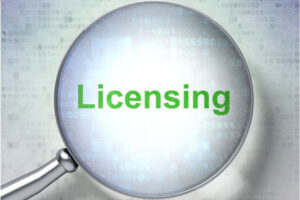The primary function of the Texas Medical Board (TMB) is to license and regulate doctors and some other medical professionals. However, the TMB is also often at the forefront of innovations in medical practice, such as telehealth. As the medical profession has increased its technological capabilities, partially in response to the COVID-19 pandemic in recent years, the TMB has also developed guidelines and rules to allow practitioners to utilize these developments while maintaining the utmost quality in patient care.
As a physician or another licensed medical professional, you are responsible for familiarizing yourself with the rules and laws concerning telemedicine and other medical care innovations, even as they evolve and change over time. If you are facing allegations that you have violated a rule or law related to your profession, you should consult an experienced Texas Medical License defense lawyer. Your attorney can represent your interests from the outset of any investigation and during disciplinary proceedings by the TMB. You can benefit from legal representation throughout this process.
Telemedicine Laws and Rules
The Texas Occupational Code outlines some broader responsibilities for physicians, dentists, and health professionals concerning telehealth services, teledentistry dental services, and telemedicine medical services. These code sections also give the TMB broad authority to create and adopt rules concerning telemedicine.
Defining Telemedicine Medical Services
Tex. Occ. Code §111.001(4) defines “telemedicine medical service” as “a health care service delivered by a physician licensed in this state, or a health professional acting under the delegation and supervision of a physician licensed in this state and acting within the scope of the physician’s or health professional’s license to a patient at a different physical location than the physician or health professional using telecommunications or information technology.”
Standards for Delivering Telemedicine Medical Services
Tex. Occ. Code §111.002 requires that a patient give informed consent before a physician or health professional provides telemedicine or telehealth services. The professionals also must ensure confidentiality, such as if they were providing in-person services. §111.04 also specifically enables the TMB to adopt rules in consultation with the commissioner of insurance that is necessary to:
- ensure that patients using telemedicine medical services receive appropriate, quality care;
- prevent abuse and fraud in the use of telemedicine medical services, including rules relating to the filing of claims and records required to be maintained in connection with telemedicine medical services;
- ensure adequate supervision of health professionals who are not physicians and who provide telemedicine medical services; and
- establish the maximum number of health professionals who are not physicians that a physician may supervise through a telemedicine medical service.
Subsequent sections specify the methods physicians can use to effectuate telehealth, including synchronous audiovisual interaction, asynchronous store, and forward technology with synchronous audio interaction.
TMB implemented the Board Rules on telemedicine years before the COVID-19 pandemic, although these services only became commonplace in the past few years. 22 Tex. Admin. Code §174.6 states that any health professional providing a health care service or procedure as a telemedicine medical service is subject to the same standard of care as the provision of the service or procedure in an in-person setting. Accordingly, the health care professional must form a practitioner-patient relationship, maintain complete and accurate medical records as required by law, and implement adequate measures to maintain patient confidentiality and privacy as required by law.
Finally, physicians must have a regular medical license to administer telemedicine medical services to Texas residents in Texas and are subject to the disciplinary procedures under the Texas Medical Practice Act, just as if they were practicing medicine in person.
Preventing Fraud and Abuse in Telemedicine
Likewise, back in 2004, the TMB adopted 22 Tex. Admin. Code §174.3 requires physicians using telemedicine medical services to adopt protocols to prevent fraud and abuse. Physicians must show a good faith effort to adopt adequate protocols by ensuring that their protocols are consistent with the standards of the Health and Human Services Commission. Additionally, physicians utilizing these services must provide notice of their privacy practices with language compliant with federal standards related to the privacy of individually identifiable health information and how to file a complaint about the services they receive.
Telemedicine and Treatment of Chronic Pain
Doctors also must issue prescriptions according to the same standards and procedures as if they were issued in person to a patient. The TMB amended prescription-related rules concerning telemedicine under 22 Tex. Admin. Code §174.5 to place limitations on prescribing medications for chronic pain. These rules focus on balancing the treatment of chronic pain as a legitimate medical condition with concerns about patient safety and the health crisis of overdose deaths.
Interstate Medical Licensure Compact
In 2021, due to the efforts of the TMB, Texas became the 33rd member state of the Interstate Medical Licensure Compact (IMLC). The IMLC provides a voluntary expedited pathway for qualifying physicians to practice in multiple states, including Texas. Physicians from other states could begin applying for licensing in Texas as of March 1, 2022. TMB helped facilitate this process to allow more healthcare choices for Texas residents and greater opportunities for access to telemedicine medical services.
We Are Here to Defend You Throughout Your Disciplinary Proceedings
You are facing an investigation and potential disciplinary proceedings before the TMB can be a difficult and stressful experience. Disciplinary proceedings can have an adverse effect on your professional license and even lead to the loss of your professional license or permit. We can help you resolve your disciplinary investigation in the most positive manner possible. Get legal assistance from an experienced Texas Medical Board defense lawyer today. Contact Bertolino LLP at (512) 515-9518 or visit us online.
Call or text (512) 476-5757 or complete a Case Evaluation form






